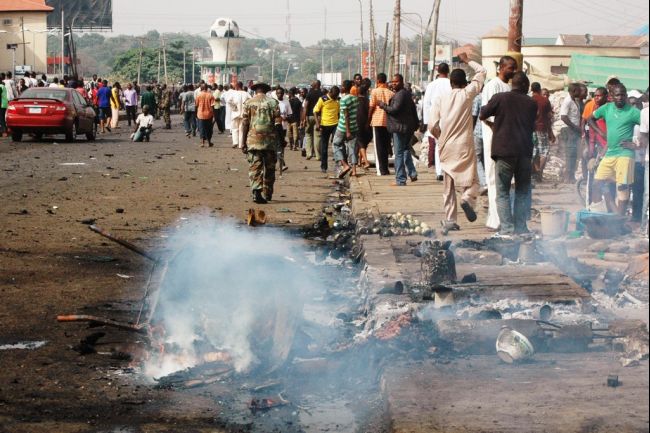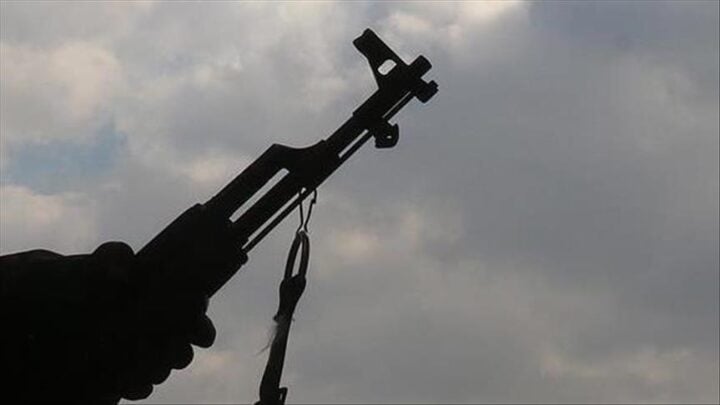BY JONATHAN LEDGER
“Let me test these scissors on him, I prepared it for action!” Those words sank deep into me, heart beating like a bass drum as a juvenile bragged and pleaded with his ‘seniors’ in the mob to lynch me.
But how did I get here, you’d ask. How did a scientist who flirts with the journalist’s world decide he wants to further test his field prowess? Curiosity and security concern got the better of me.
Shasha market is the pepper capital of Ibadan, with a sea of loaded trailers docking daily for inward distribution. The Hausa traders- major wholesalers- offload for retailers- majorly Yorubas- as it has been since time immemorial. The community is also a mixture of both ethnic groups- other tribes sprinkled on the edges, peaceful co-existence exemplified by the Seriki and Baale houses at trekkable distance from each other.
Advertisement
When fighting broke out Friday morning- reportedly due to the Thursday death of a Yoruba man who demanded respect for a pregnant woman from the Hausa culprit, it was a huge security concern. This was due to the proximity of my aged parents’ house to the main theatre of events where another two were reported killed and several houses burnt, according to eyewitnesses. Many fled at night (including my parents) scared that the house burning exercise could spiral out of control.
I geared up Saturday morning and made my way towards Shasha from the Ajibode end, driving behind- at some distance- a Toyota Siena car filled with riot policemen who shot severally into the air on getting to a roadblock manned by a Yoruba mob I unfortunately encountered.
This wannabe taught it was all vibes as he snapped pictures from a distance and happily continued towards the blockade on foot, using the side bushes as the policemen advanced. When the mob resurfaced afterward, they reorganized and harassed a Honda Pilot driver’s ethnicity. “Se yoruba ni e?” “Awa o mo e ri oo! (Are you a Yoruba man? We don’t know you!), they screamed at the calm driver before redirecting him towards safe passage.
Advertisement
It was a gathering of machete-wielding, bottle breaking boys armed with dangerous objects such as knives, scissors, planks, farm tools, and other emergency weapons. This stench-filled gathering of over fifteen boys (with many others looking on from various locations) was cheered on by fearful elderly indigenous women lamenting the sacking of businesses and possible overthrow of their once peaceful abode. Unbeknownst to me, one of them was also in the bush observing my “stealthy” actions.
“I am not Yoruba or Hausa, I am Edo but you can see that we are speaking the same language” I declared and tried to make my way past them to observe the Hausa side around the market. “I used to live here, my parents live here, and I’m also a journalist trying to know exactly what is happening on both sides,” I added as I brandished my TheCable ID to the leader while others surrounded me with anger, weapons mere centimeters from my skin.
My observer ratted me out and this juvenile almost used his scissors on me but was instinctively stopped by the red-eyed leader who also rebuffed all attempts to manhandle me.
“Ha, e je kin gba leyokan,” “e je ka gba ni nkan,” “e je ka lu aye e baje,” these and other dangerous statements poured in as they searched for someone to vent their pent-up anger upon. My Adam’s apple sank and sweats build-up at the danger I had invited on my oblivious wife and aged parents whom I left at their temporary hotel abode.
Advertisement
A vicious-looking fellow forced my phone off my hands as I was commanded to open the gallery to delete all picture and videos taken, “Oya delete gbogbo e!” he demanded before advising that “ti won ba ran eyin journalist ni ise eru, o ye k’ee f’opolo si” (if they send you journalist out to cover stories you should think twice about it [before going into a danger zone]).
Scared but with a bold face I maintained throughout the ordeal, I added that it is my job to be unbiased and cover every angle. He ‘blessed’ me on my way with two emissaries for confirmation.
It was a similar sight at an entrance to Shasha market from the Asawale-Adako link (police barricaded other linking roads), a proper barricade manned by three fierce-looking sentries (two stationary, one mobile patrol) armed with clubs and metal tools who warned me not to take a step across the divide. Beside was a stretch of vandalized stalls that had three ‘checkpoints’. A hoard of armed brethren (personally counted 30) stood some further 20-30 metres away waiting for the known foe. All attempts to get any police officer’s attention were rebuffed severally and all forms of communication were cut off as they awaited any overzealous mob to make the wrong move.
With only one picture on my gadget [of a deserted street and smoke from burning stalls/building in the background] but plenty imprinted in my head, I found my way out of this brewing keg of gunpowder, worried about an impending fracas that could spread to other places (Moniya, Ojoo, Iwo road).
Advertisement
It was also the first baptism of fire, frightening at the moment but the thrill was enjoyable when I returned to the comfort of my loved ones. Journalists are really endangered species.
Caveat: Despite the curfew by Engr. Seyi Makinde, Governor of Oyo State, the mob continued its destructive activities. They attacked persons perceived to be Hausas and destroyed two vehicles as I made my way out of the community around 2pm.
Advertisement
Views expressed by contributors are strictly personal and not of TheCable.
Add a comment






